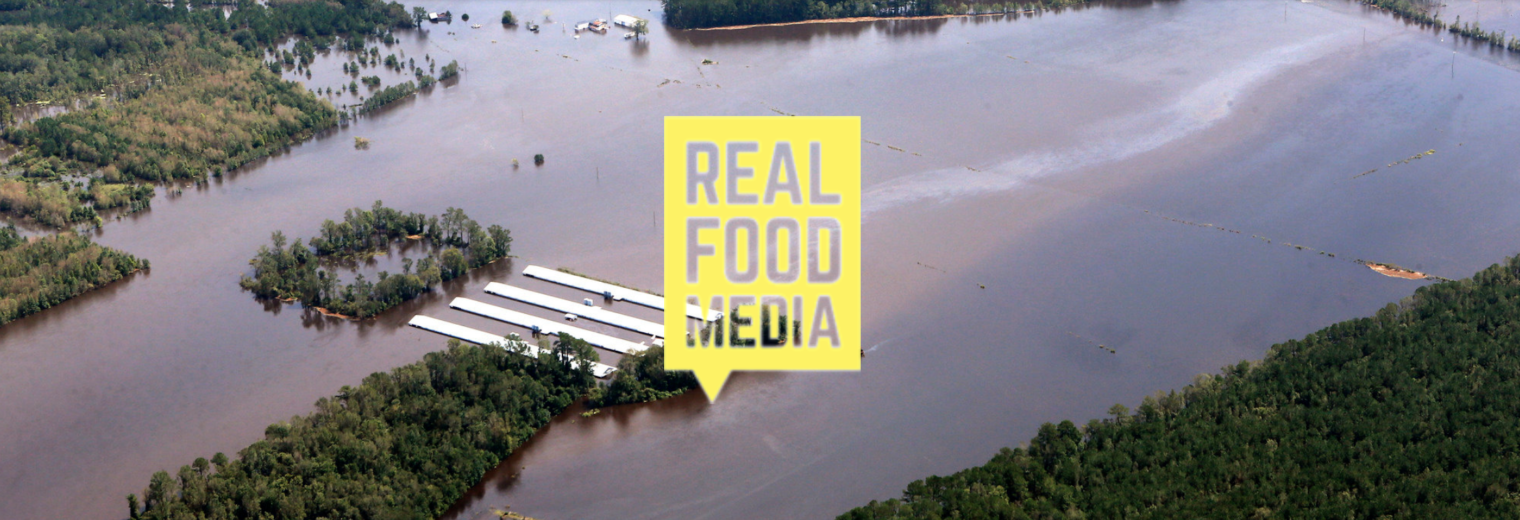“These disasters drag into the light exactly who is already being thrown away.” – Naomi Klein, in a tweet about Hurricane Florence
Tom Philpott’s excellent reporting for Mother Jones on the factory farms of North Carolina following Hurricane Florence paints a horrifying picture: millions of chickens and thousands of hogs drowned by flood waters and animal waste from burst lagoons seeping into the surrounding “soup of pesticides, fertilizer, and topsoil.” As these (un)natural disasters so often do, Hurricane Florence shines a light on those most vulnerable—and exploited—in our food system.
Factory livestock farms (Confined Animal Feeding Operations or CAFOs) are disproportionately located near communities of color and low-income areas. And much of the labor for CAFOs is provided by immigrant workers living in precarious housing provided by farm owners, such as mobile homes or other structures unlikely to withstand heavy wind and rain. There are over 100,000 seasonal farmworkers in North Carolina. Under contract with large corporations like Tyson, Smithfield, and Purdue, hog and poultry farmers also shoulder substantial risk during these increasingly frequent catastrophes.
Speaking on Democracy Now, Naeema Muhammad of the North Carolina Environmental Justice Network did not mince words about the corporations responsible for this disastrous system: “Smithfield owns everything—the hogs, the trucks, the feed, everything except the waste. The waste belongs to that grower, who is not being paid enough to do anything different from what they are doing. But Smithfield is pocketing billions of dollars in profit every year and can do something about it, but they won’t, because [their] goal is profit over people.”
This is why we need people power. Climate activists in San Francisco earlier this month staged protests and direct actions during California Governor Jerry Brown’s Global Climate Action Summit. With communities of color, and especially Native people, in the lead, protestors demanded an end to corporate extractivism and false solutions saying “[solutions] have always been in the communities, not behind closed doors.”
In community and solidarity,
Tanya, Tiffani, Anna, and Christina
Read the full issue of the Real Food Scoop
Header photo: Rick Dove, Waterkeeper Alliance / Flickr

